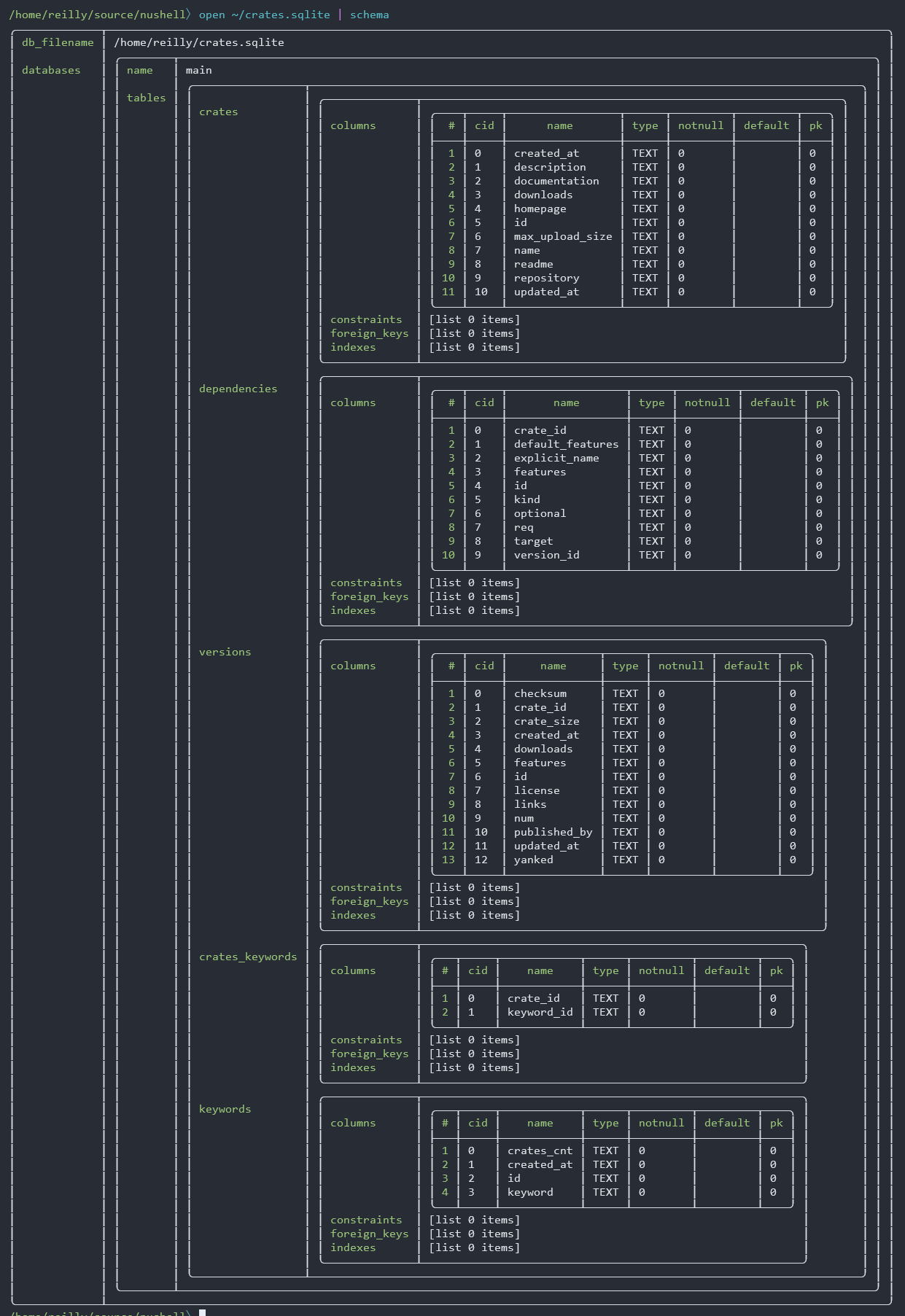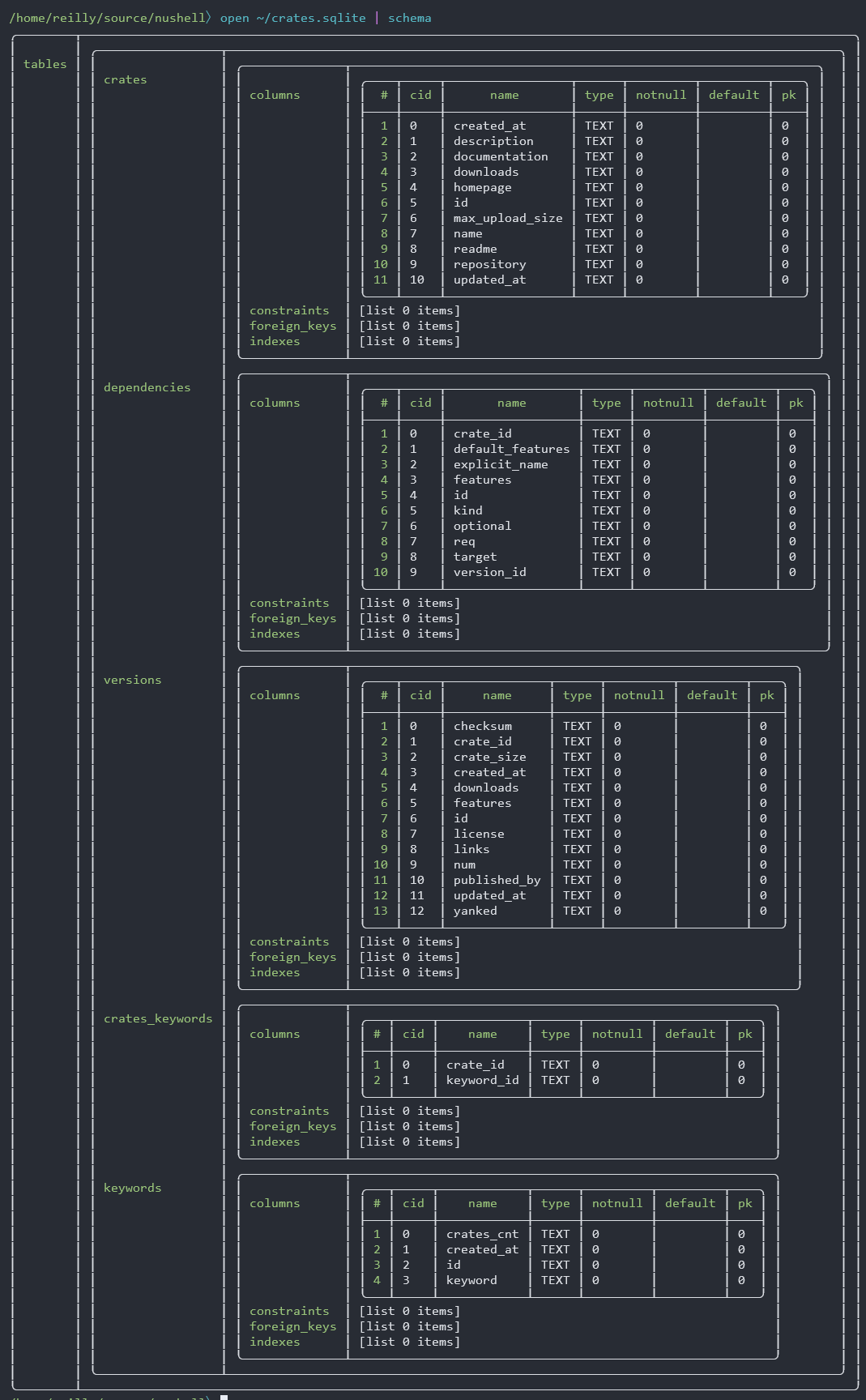# Description
When implementing a `Command`, one must also import all the types
present in the function signatures for `Command`. This makes it so that
we often import the same set of types in each command implementation
file. E.g., something like this:
```rust
use nu_protocol::ast::Call;
use nu_protocol::engine::{Command, EngineState, Stack};
use nu_protocol::{
record, Category, Example, IntoInterruptiblePipelineData, IntoPipelineData, PipelineData,
ShellError, Signature, Span, Type, Value,
};
```
This PR adds the `nu_engine::command_prelude` module which contains the
necessary and commonly used types to implement a `Command`:
```rust
// command_prelude.rs
pub use crate::CallExt;
pub use nu_protocol::{
ast::{Call, CellPath},
engine::{Command, EngineState, Stack},
record, Category, Example, IntoInterruptiblePipelineData, IntoPipelineData, IntoSpanned,
PipelineData, Record, ShellError, Signature, Span, Spanned, SyntaxShape, Type, Value,
};
```
This should reduce the boilerplate needed to implement a command and
also gives us a place to track the breadth of the `Command` API. I tried
to be conservative with what went into the prelude modules, since it
might be hard/annoying to remove items from the prelude in the future.
Let me know if something should be included or excluded.
# Description
Replace `.to_string()` used in `GenericError` with `.into()` as
`.into()` seems more popular
Replace `Vec::new()` used in `GenericError` with `vec![]` as `vec![]`
seems more popular
(There are so, so many)
# Description
This PR creates a new `Record` type to reduce duplicate code and
possibly bugs as well. (This is an edited version of #9648.)
- `Record` implements `FromIterator` and `IntoIterator` and so can be
iterated over or collected into. For example, this helps with
conversions to and from (hash)maps. (Also, no more
`cols.iter().zip(vals)`!)
- `Record` has a `push(col, val)` function to help insure that the
number of columns is equal to the number of values. I caught a few
potential bugs thanks to this (e.g. in the `ls` command).
- Finally, this PR also adds a `record!` macro that helps simplify
record creation. It is used like so:
```rust
record! {
"key1" => some_value,
"key2" => Value::string("text", span),
"key3" => Value::int(optional_int.unwrap_or(0), span),
"key4" => Value::bool(config.setting, span),
}
```
Since macros hinder formatting, etc., the right hand side values should
be relatively short and sweet like the examples above.
Where possible, prefer `record!` or `.collect()` on an iterator instead
of multiple `Record::push`s, since the first two automatically set the
record capacity and do less work overall.
# User-Facing Changes
Besides the changes in `nu-protocol` the only other breaking changes are
to `nu-table::{ExpandedTable::build_map, JustTable::kv_table}`.
# Description
This PR does a few things to help improve type hovers and, in the
process, fixes a few outstanding issues in the type system. Here's a
list of the changes:
* `for` now will try to infer the type of the iteration variable based
on the expression it's given. This fixes things like `for x in [1, 2, 3]
{ }` where `x` now properly gets the int type.
* Removed old input/output type fields from the signature, focuses on
the vec of signatures. Updated a bunch of dataframe commands that hadn't
moved over. This helps tie things together a bit better
* Fixed inference of types from subexpressions to use the last
expression in the block
* Fixed handling of explicit types in `let` and `mut` calls, so we now
respect that as the authoritative type
I also tried to add `def` input/output type inference, but unfortunately
we only know the predecl types universally, which means we won't have
enough information to properly know what the types of the custom
commands are.
# User-Facing Changes
Script typechecking will get tighter in some cases
Hovers should be more accurate in some cases that previously resorted to
any.
# Tests + Formatting
<!--
Don't forget to add tests that cover your changes.
Make sure you've run and fixed any issues with these commands:
- `cargo fmt --all -- --check` to check standard code formatting (`cargo
fmt --all` applies these changes)
- `cargo clippy --workspace -- -D warnings -D clippy::unwrap_used -A
clippy::needless_collect -A clippy::result_large_err` to check that
you're using the standard code style
- `cargo test --workspace` to check that all tests pass
- `cargo run -- crates/nu-std/tests/run.nu` to run the tests for the
standard library
> **Note**
> from `nushell` you can also use the `toolkit` as follows
> ```bash
> use toolkit.nu # or use an `env_change` hook to activate it
automatically
> toolkit check pr
> ```
-->
# After Submitting
<!-- If your PR had any user-facing changes, update [the
documentation](https://github.com/nushell/nushell.github.io) after the
PR is merged, if necessary. This will help us keep the docs up to date.
-->
---------
Co-authored-by: Darren Schroeder <343840+fdncred@users.noreply.github.com>
This PR changes the `schema` command for viewing the schema of a SQLite
database file. It removes 1 level of nesting (intended to handle
multiple databases in the same connection) that I believe is
unnecessary.
### Before

### After

## Rationale
A SQLite database connection can technically be associated with multiple
non-temporary databases using [the ATTACH DATABASE
command](https://www.sqlite.org/lang_attach.html). But it's not possible
to do that _in the context of Nushell_, and so I believe that there is
no benefit to displaying the schema as if there could be multiple
databases.
I initially raised this concern back in April, but we decided to keep
the database nesting because at the time we were still looking into more
generalized database functionality (i.e. not just SQLite). I believe
that rationale no longer applies.
Also, the existing code would not have worked correctly even if a
connection had multiple databases; for every database, it was looking up
tables without filtering them by database:
6295b20545/crates/nu-command/src/database/values/sqlite.rs (L104-L118)
## Future Work
I'd like to add information on views+triggers to the `schema` output.
I'm also working on making it possible to `ctrl+c` reading from a
database (which is turning into a massive yak shave).
* Test commands for proper names and search terms
Assert that the `Command.name()` is equal to `Signature.name`
Check that search terms are not just substrings of the command name as
they would not help finding the command.
* Clean up search terms
Remove redundant terms that just replicate the command name.
Try to eliminate substring between search terms, clean up where
necessary.